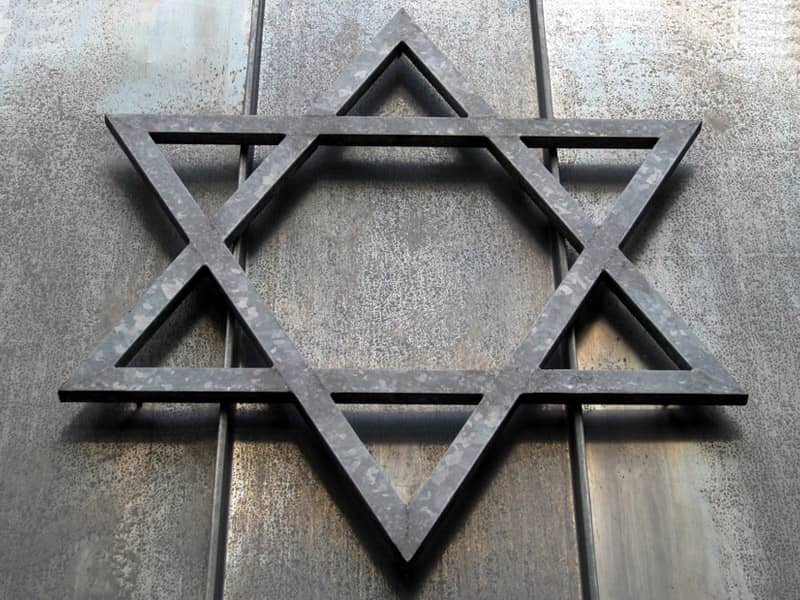Rosh Hashanah often seems like the Jewish communal season of deja vu. The holiday, celebrating the beginning of the new year, is about cycles--the cycles of time, the calendar, and the endless cyclical passing of the seasons. Every year, we spend this same set of holidays at the same synagogue, seeing the same people again (although they look a little older than last year), reciting the same prayers, and eating the same traditional foods.
And every year, we go through a period of reflection, called in Hebrew, heshbon nefesh, which literally means "taking stock of our souls." It is the time when we ask: Where are we? What are we doing here, and how did we get here? And perhaps even more important, is where we are right now where we want to be or need to be?
Yet this annual period of reflection reminds us how different each year really is. This past year exemplified new challenges and new needs for reflection. The entire country, if not the world, will experience the need for heshbon nefesh this year. The terrorist attacks of September 11th last year, just before the High Holy Days, threw us into an uproar, as the destiny of our nation departed from the expected script. All of us, to one degree or another, were plunged into shock, pain, and profound sadness and mourning.
Our nation has survived the year with a sense of dignity, confidence, and resolve. We discovered we actually are an American people. We all share the same national destiny--and tragedy. Rosh Hashanah allows us to reflect on all that we have managed to endure, and to transform this time of mourning and despair into hope and confidence in the future. As the Psalmist sang, "I will praise you, Adonai, for you raised me up and did not permit my foes to rejoice over my downfall...In my ease, I thought to myself, 'nothing can shake my security!'" (Psalm 30)
Even when our lives seem darkest and their most bleak, Rosh Hashanah is an opportunity to spiritually renew our lease on life and joy. As the Psalmist sings, "Adonai, you raised me up from the pit of living hell; you gave me life in the depths of my despair." (Psalm 30)
I especially need this time of individual reflection. Last year, around this time, my inner emotional life resonated all too well with world events. After years of painful, expensive, invasive, and humiliating infertility treatments (especially for my wife), we struck rock bottom. One person--or a couple--can only handle so much failure, and this last year we topped out on our ability to cope with failure. Each failure sent me further down the path of despair. I have always wanted to be a daddy, or an "abba" in Hebrew, and the pain I experienced with each failure and loss scarred my soul.
I also lost my job. I had done everything right in my life but had only come to what I perceived to be failure. I had gone to college, attended rabbinical school, met a girl, got married, got a good job, bought a house, and was ready to settle down even further by having kids.
But as the Yiddish saying goes, "A mentsch tracht un Gott lacht"--a man plans, and God laughs! Perhaps as children we are fed a bill of goods when we are told that we can do and achieve whatever we want to in life. No one ever told me that I might not be able to father children as an adult. Nor was I ever told that I might lose my job. It was a year of despair. But after weeks and months, I, too, experienced a transformation.
Yes, I am finally an "abba," although it did not come about in the way I thought it would; we adopted a baby girl--an African-American baby--at birth. I even cut the umbilical cord in the hospital. Now my family faces new challenges--raising a child, a black girl in a white family, and even more challenging, a Jewish black girl in a white family and predominantly white Jewish-American community.
As I enter the portals of the synagogue this year and chant the haunting, familiar melodies of the High Holy Day prayers, I will be thinking about the variability of life, and how our circumstances can change so radically. This holiday of never-ending cycles is actually God's annual reminder to us that our years don't go as planned. We end up somewhere different from where we expected to be each year, and we need a new period of heshbon nefesh to decide where we want to go from this new place.
This year, as I deliver my Rosh Hashanah sermon, instead of contemplating the silence of an empty child's room in my home, I fully expect to hear the shrieks, giggles, and crying of my infant daughter. Before, I used to silently urge the embarrassed mothers to hurry up and remove their crying children. This year, I hope my wife will be one of them--and take her time as she moves in the direction of the exit.
A year goes by, a year of pain, anger, and despair. Yet, somehow, it concludes with hope. This new year will begin with me being able to recite this line from the early morning service of Rosh Hashanah, with a certain degree of confidence: "Adonai, you transformed my mourning into dancing; you disrobed me of my garments of weeping and instead girded me with delight!" And there is no better way to begin a new year--a year of spirituality, a year of hope, and a year of fatherhood--than with joy and delight.

